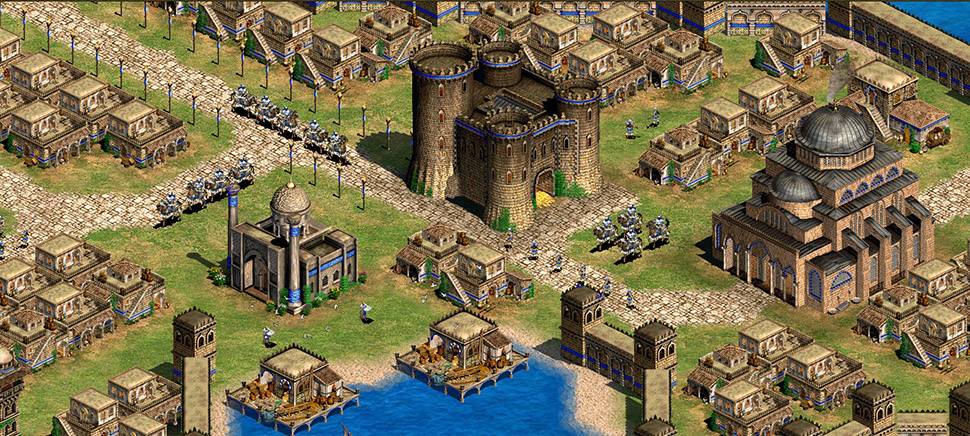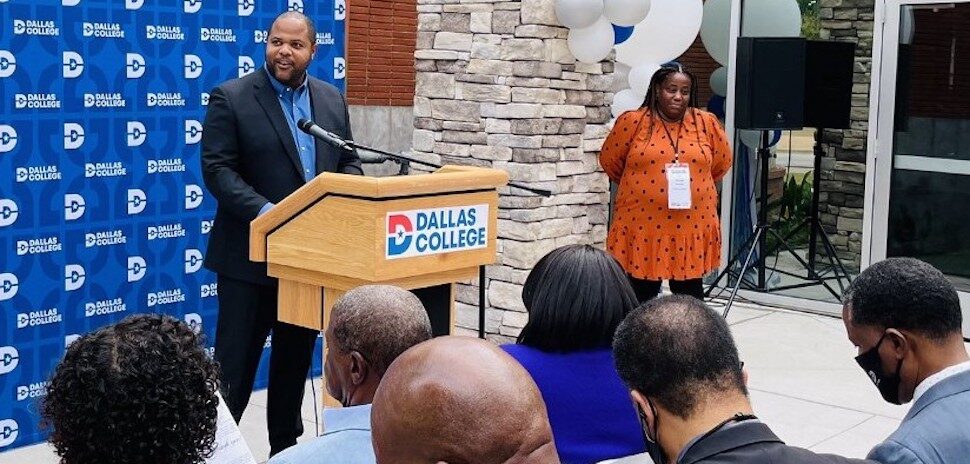HOW ENSEMBLE IMPACTED DALLAS’ PAST AND PRESENT GAMING SCENE
Dallas became a hub of the early PC gaming movement in the 1990s, with studios like Id Software (Doom) and 3D Realms (Duke Nukem) paving the way for a new generation of games. Another local studio that belongs in that pantheon is Ensemble Studios, which was founded right here in Dallas in 1995.
Ensemble is best known for the Age of Empires games, a real-time strategy (RTS) series that belongs to the same genre as Blizzard Entertainment’s Warcraft and StarCraft games. Unfortunately, Ensemble closed its doors in 2009, but the studio’s legacy lives on in the multiple local studios that rose from its ashes.
BACK IN THE DAY
During the recent Let’s Play Gaming Expo in Plano, former members of Ensemble took part in a panel that looked back at the history of the studio and how it helped shape much of the current game development scene in Dallas.
The panel included Ian Fischer and Harter Ryan, both of whom now work at Plano-based Robot Entertainment, and Dave Pottinger, who is the co-founder and CEO of BonusXP in Allen.
“Most of us were fresh out of college, and back in those days there was no such thing as a game development degree.” – Dave Pottinger
While Dallas already had a few game studios when Ensemble was created, Pottinger explained that the team had to discover the game development process on its own.
“We didn’t know what we were doing,” Pottinger admitted. “Most of us were fresh out of college, and back in those days there was no such thing as a game development degree.”
Being an unheard of Dallas-based studio, Pottinger said that Ensemble couldn’t draw experienced game developer talent the way a West Coast studio might, but Fischer added that in some ways this was a good thing.
“The people coming right out of school were some of our best employees,” Fischer said. “It was actually some the experienced people we ended up having trouble with.”
RAPID GROWTH
After the surprise success of the first Age of Empires game, Ensemble rapidly grew in size, which the panelists said was both good and bad. Good because the studio had more resources to create bigger and better games, bad because it lost the ability to include the entire team in the design process.
“But as we got bigger, that room got more and more crowded until eventually we couldn’t all fit.” – Ian Fischer
“We used to have family meetings in a little room with a fireplace where the entire studio could sit around and talk about what we wanted to see in our game,” Fischer said. “But as we got bigger, that room got more and more crowded until eventually we couldn’t all fit. We went from designing games on consensus to making decisions for the team.”
Even if it lost that small team feel, Ensemble still managed to knock it out of the park with Age of Empires II, which is held up by many fans and critics as one of the best RTS games of all time.
ACQUISITION
The studio’s success put it on the radar of Microsoft, which officially acquired Ensemble in 2001. This allowed Ensemble to expand even more, but it also came with its own set of problems.
At that time, Microsoft was still relatively new to the gaming scene, and Ryan admitted that the mega-corp “never really understood PC gaming.”
This gap became even wider after Microsoft jumped into the console market with the original Xbox.
“That was a watershed moment,” Ryan said. “And you could see the shift in the way Microsoft approached gaming afterward.”
The partnership with Microsoft led Ensemble into working on Halo Wars, an RTS for the Xbox that was set in the same universe of Bungie’s Halo series. Ensemble ran into a host of problems on Halo Wars, partly because the studio had been divided into different teams that didn’t communicate well during the game design process.
For example, a programmer was hired to build the pathing system for Halo Wars from scratch, despite the fact that Ensemble had spent years perfecting pathing for Age of Empires.
Before the game was even finished, it was announced that Ensemble would be closing after the release of Halo Wars, and at the beginning of 2009, the studio officially shut its doors.
ENSEMBLE’S LEGACY LIVES ON
While Ensemble was no more, the studio’s story did not end there.
According to Fischer, developers coming out of Ensemble could have gotten an interview callback from just about any other game studio in the country, but many decided to stay in Dallas and form their own studios. This includes companies such as Zynga, formerly Zynga Dallas, (Words With Friends) and Robot Entertainment (Orcs Must Die!), along with several others.
It has been nearly eight years since the closure of Ensemble Studios, but many in the gaming industry say its legacy can still be felt not only in Dallas but across the entire gaming industry.
LET’S PLAY EVENT COVERAGE:
2nd Let’s Play Gaming Expo Kicks Off Saturday in Plano
Reimagining a Classic Dallas-Made in 2016
New Generation Meets Arcade Classics at Expo
For a daily dose of what’s new and next in Dallas-Fort Worth innovation, subscribe to the Dallas Innovates Every Day newsletter.




























